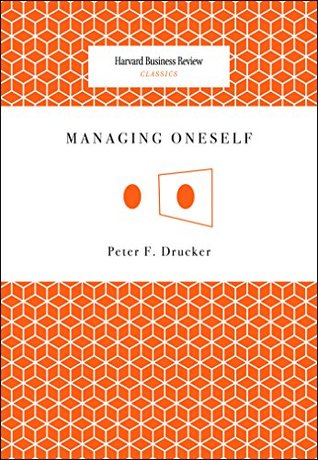More on this book
Community
Kindle Notes & Highlights
Started reading
October 24, 2019
The only way to discover your strengths is through feedback analysis. Whenever you make a key decision or take a key action, write down what you expect will happen. Nine or 12 months later, compare the actual results with your expectations. I have been practicing this method for 15 to 20 years
There are three ways to develop a second career.
first is actually to start one.
government official who enters the ministry at 45, for instance; or the midlevel manager who leaves corporate life after 20 years to attend law school and become a small-town attorney.
The second way
is to develop a parallel career.
usually in a nonprofit organization,
Finally, there are the social entrepreneurs.
they keep on doing what they have been doing all along but spend less and less of their time on it. They also start another activity, usually a nonprofit.
Bob Buford, for example, built a very successful television company that he still runs.
also founded and built a successful nonprof...
This highlight has been truncated due to consecutive passage length restrictions.
People who manage the second half of their lives may always be a minority.
But it is this minority, the men
who see a long working-life expectancy as an opportunity both for themselves and for society, who will become leaders and models.
There is one prerequisite for managing the second half of your life: You must begin ...
This highlight has been truncated due to consecutive passage length restrictions.
If one does not begin to volunteer before one is 40 or so, one will not volunteer once past 60.
entrepreneurs I know began to work in their chosen second enterprise long before they reached their peak in their original business.
There is another reason to develop a second major interest, and to develop it early.
In a society in which success has become so terribly important, having options will become increasingly vital.
The over-whelming majority of people did not expect anything but to stay in their “proper station,”
In a knowledge society, however, we expect everyone to be a success.
For a great many people, there is at best an absence of failure.
then it is vitally important for the individual, and equally for the individual’s family, to have an area in which he or she can contribute, make a difference, and b...
This highlight has been truncated due to consecutive passage length restrictions.
that offers an opport...
This highlight has been truncated due to consecutive passage length restrictions.
for being a s...
This highlight has been truncated due to consecutive passage length restrictions.
Knowledge workers outlive organizations, and they are mobile. The need to manage oneself


